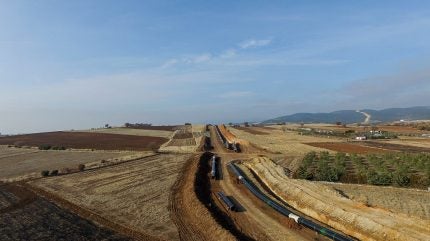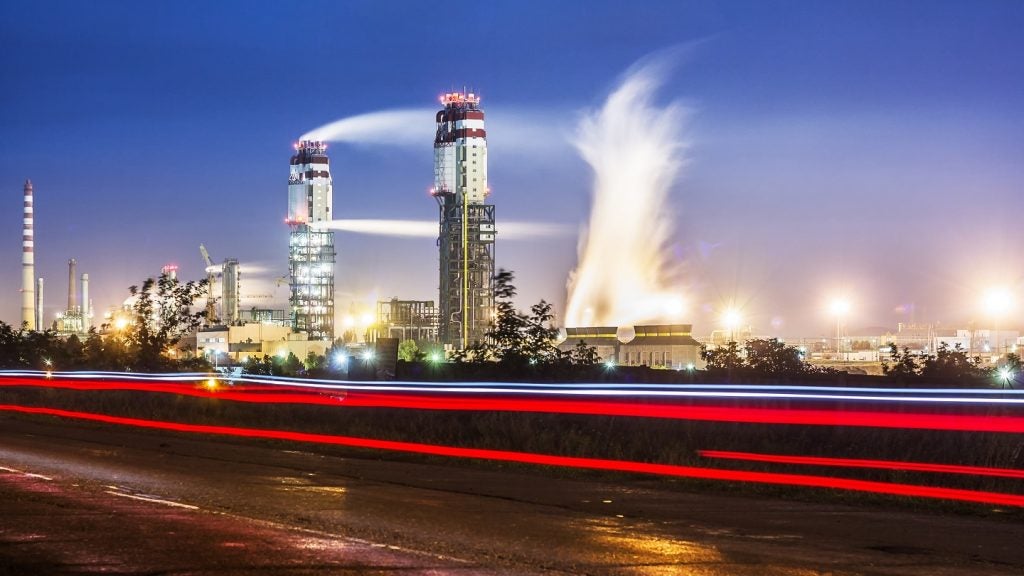
The recent decision to allow a second consecutive petrostate the opportunity to host the next UN climate conference, COP29, has met with a mixed reaction. On the one hand, you could argue that Azerbaijan, a country facing serious allegations of human rights violations and that has plans to scale up oil and gas production – despite the International Energy Agency’s warning there can be no new oil and gas fields if net-zero is to be achieved by 2050 – is ill-suited to hosting the world’s most important climate conference. On the other hand, some argue that putting the oil and gas industry front and centre of the talks is “an opportunity to fast-forward the clean energy transition” because fossil fuel-focused countries and companies also have to be part of the solution.
Romain Ioualalen, global policy campaign manager at the NGO Oil Change International, tells Offshore Technology‘s sister publication Energy Monitor that the “key benefit” of having petrostate the United Arab Emirates (UAE) host the last COP is that it “made talking about fossil fuels inevitable”. It was “never a given” that fossil fuels would be on the COP28 agenda, he says. The final text of the Global Stocktake calling for a “transitioning away from fossil fuels in energy systems” was due in part to a petrostate host making it “impossible for the the oil and gas industry – and oil and gas-producing countries – to hide behind UNFCCC rules, around how you account for emissions, etc”.
Similarly, Richard Folland, head of policy and engagement at the think tank Carbon Tracker, says it is “helpful” that countries like Azerbaijan and the UAE are hosting COPs because it “really focuses attention on fossil fuels as the source of the climate crisis in the first place”. Given that the climate crisis is an international issue, “we need different types of actors and players participating in the discussions”, he adds. “It isn’t necessarily helpful if everybody’s singing from the same hymn sheet.”
Despite both being petrostates – countries whose economies are heavily dependent on the extraction and export of oil or natural gas – there are some key differences between the UAE and Azerbaijan.
While the UAE is the world’s eighth-largest oil and gas producer, producing five million barrels of oil equivalent per day in 2023, Azerbaijan is in 28th place, producing just one million for the same year, according to data from Energy Monitor’s parent company GlobalData.
That said, in terms of oil and gas revenues (measured as oil rents per gross domestic product), Azerbaijan is in tenth place globally, while the UAE lags further behind in 14th place, according to data from the World Bank. While the UAE has already taken steps to diversify its economy away from fossil fuels, Azerbaijan is considered more vulnerable when it comes to exposure to stranded assets if oil and gas demand falls, finds a December 2023 report from Carbon Tracker.
How well do you really know your competitors?
Access the most comprehensive Company Profiles on the market, powered by GlobalData. Save hours of research. Gain competitive edge.

Thank you!
Your download email will arrive shortly
Not ready to buy yet? Download a free sample
We are confident about the unique quality of our Company Profiles. However, we want you to make the most beneficial decision for your business, so we offer a free sample that you can download by submitting the below form
By GlobalDataNot only is Azerbaijan more reliant on oil and gas income than the host of COP28, but it has positioned itself as a key partner to the EU for gas exports since Russia’s invasion of Ukraine. In July 2022, the EU signed a deal with Azerbaijan to double its gas imports from the country to 20 billion cubic feet per year by 2027.
This will require Azerbaijan to ratchet up production, with some suggesting the country will struggle to meet EU demand without relying on Russian imports. Azerbaijan is already targeting a 30% renewables share in its overall energy balance by 2030 – which would reduce domestic reliance on natural gas – but if this is only to free up supply for EU exports, as has been suggested, it does not benefit climate action.
Indeed, were all of Azerbaijan’s remaining oil and gas reserves – 4.1 billion barrels of oil and 21,000 trillion cubic feet of gas in fields already in production, plus an additional 140 million barrels of oil in planned fields, according to GlobalData – to be burned, this would result in 1.75 gigatonnes (Gt) of CO₂ emissions from oil and 1.16Gt of CO₂ from gas. This total sum of CO₂ almost exactly equates to the EU’s entire 2022 emissions.
“[Azerbaijan] is a country that still sees its future as a gas exporter,” says Ioualalen. “[We shall] have to see what role gas plays in the language they promote at COP. For now, we don’t really know [what its position will be], although there is a clear risk there, because [there] seems to be a conflict between what they see as their future around gas and what the [energy] transition requires.”
On 1 March, 23 countries in the Southern Gas Corridor Advisory Council met in Baku, Azerbaijan’s capital, to discuss plans for expanding the corridor, which would involve the Trans Adriatic Pipeline significantly increasing its gas supply capacity from Azerbaijan to Europe, adding an additional 1.2 billion cubic metres per year from 2026.
Azerbaijan’s President Ilham Aliyev said: “I think that at least financing of this project from European financial institutions must be done based on a realistic approach and should not be overshadowed by general anti-fossil fuel trends.”
That the Azerbaijani President is inviting EU countries not to be influenced by “anti-fossil fuel trends” suggests the incoming COP29 Presidency may be pushing the narrative that energy security trumps climate concerns in the coming months.
Ioualalen notes that what the public sees at COP will be just the “tip of the iceberg”. What is promoted “in the corridors” – which may well include gas, carbon capture and storage, and hydrogen – will be just as important, he says. At COPs, there are “probably a lot of deals that happen that we don’t see”, he adds.
That Azerbaijan is what Folland calls more of a “closed book” when it comes to international diplomacy, compared with countries like the UAE, could also inform how the climate talks play out. Folland wonders “how much openness we are going to see from [Azerbaijan] in terms of the executive decision-making. It is probably something which doesn’t come naturally to them.”






